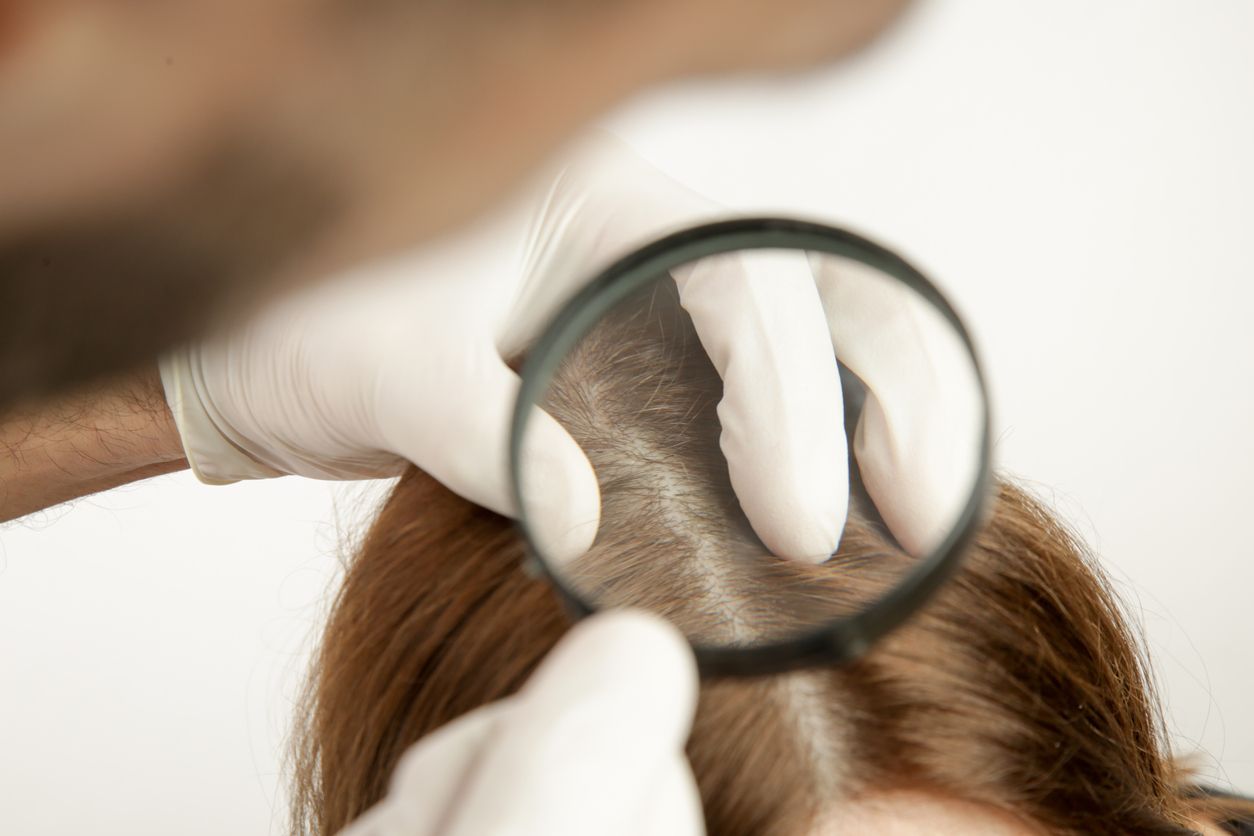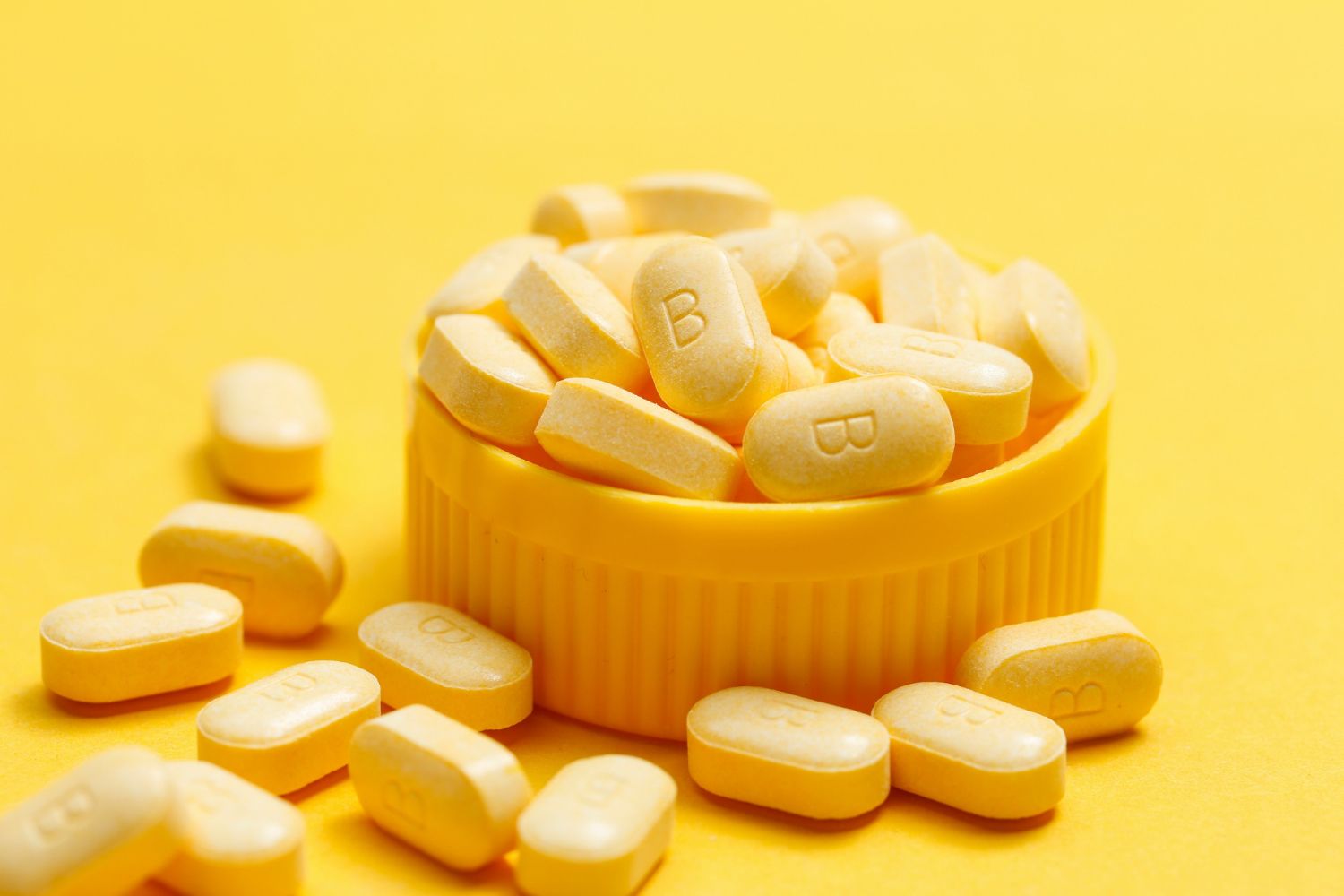
- Home
- Trend
- Weight Loss Strategies
- Acne Tips
- Hair Health Information
- Blemish Removal Tips
- Acne Scar Removal Tips
- Muscle Building Techniques
- Intimate Care Tips
- Postpartum Intimate Care
- Eye Bags Wiki
- Tips for Face Slimming
- Secret of Permanent Hair Removal
- Breast Enlargement Tips
- Cure to Snoring
- Marionette Lines
- Skin-Tightening Secrets
Why do women experience hair thinning or hair loss? What are the real causes, and which hair regrowth foods or vitamins are actually useful? In this post, we’ll explore the science behind female hair loss, recommend top vitamins and superfoods for hair growth, and share our editor’s personal experience with a trending laser hair regrowth treatment.
Understanding Female Hair Loss—Why Is My Hair Thinning?

Before diving into treatment options, let’s understand the natural hair growth cycle. Our hair grows in three main stages: the growth phase, the transition phase, and the resting phase. Each hair strand goes through these stages, then the cycle repeats. Women typically have about 90,000 to 100,000 hairs, with 90% in the growth phase and 10% in the resting or shedding phase.
Losing 70–100 hairs a day is completely normal! Washing, blow-drying, or brushing may cause more to fall out. But if you're shedding significantly more than usual for over 2–3 months, or if your hair is thinning noticeably or growing slower, it could be a sign of female-pattern hair loss.
To treat it effectively, identifying the root cause is key.
Top 3 Hair Growth Vitamins That Really Work

1. Biotin (Vitamin B7)
Biotin helps maintain healthy skin, nails, and hair. It’s a go-to vitamin to strengthen hair and reduce breakage.
2. Vitamin E
A powerful antioxidant, vitamin E protects skin and scalp health. It can reduce oxidative stress on the scalp and boost hair shine.
3. Vitamin C
Aside from supporting immunity, vitamin C fights free radicals and slows hair and scalp aging.
免費體驗
F8 Hair Regrowth Treatment
1 Minute Self-Registration
Date should not be before minimal date
Common Causes of Female Hair Loss
1. Postpartum Hair Loss
One of the most common causes. During pregnancy, high estrogen levels boost hair growth and skin glow. But after childbirth, hormones drop, causing many hairs to enter the shedding phase all at once.
TCM (Traditional Chinese Medicine) links postpartum hair loss to blood and energy (qi) deficiency caused by childbirth.
2. Stress (Mental + Physical)
Chronic stress affects hormone levels, slows metabolism, and disrupts hair growth cycles. Hair remains in the resting phase too long, leading to visible thinning.
3. Illness or Surgery Recovery
Major illness, operations, or chronic conditions can drain your body of nutrients, weakening follicles and reducing hair growth.
4. Autoimmune Disorders
Conditions like alopecia areata (a.k.a. “spot baldness”) involve immune cells attacking hair follicles. Some medications, especially cancer drugs, can also trigger hair loss.
5. Excessive Styling
Frequent dyeing, bleaching, and perming with harsh chemicals or heat damage keratin in hair, making strands fragile and prone to breakage—from root or mid-length.
6. Extreme Dieting
Crash diets can lead to malnutrition. The body enters “survival mode,” prioritizing essential organs and slowing hair growth. Over time, hair thins drastically.
7. Scalp Infections
A healthy scalp, like a healthy gut, requires balance. Over-washing or oily buildup can disrupt the microbiome, leading to inflammation, clogged follicles, and hair loss.
8. Aging
Hair naturally thins with age. If your parents experienced thinning, you might too. It’s important to take action early with diet, treatment, or therapy to delay scalp aging.
Types of Female Hair Loss
1. Female-Pattern Baldness (Androgenetic Alopecia)
Affects about 6% of Asian women. Caused by genetics and androgens, it presents as diffuse thinning over the crown or hairline—not full baldness but visible scalp in affected areas.
2. Diffuse Thinning Across the Scalp
Can result from hormonal imbalances, crash diets, blood loss during periods, or over-styling. Hair becomes evenly sparse, with widened hairlines or visible crown.
3. Alopecia Areata ("Spot Baldness")
Sudden, round bald patches often triggered by immune dysfunction, stress, or lifestyle factors. It can develop rapidly within days.
4. Seborrheic Dermatitis–Related Hair Loss
Not just oily scalp—this condition involves bacterial overgrowth due to excessive sebum, causing itchiness, dandruff, odor, and follicle inflammation.
5. Postpartum Hair Loss
Up to 70–80% of new moms experience it. Most recover after 4 months, but some have weak follicle activity and slow regrowth due to lingering qi and blood deficiency.
6. Scalp Infections
Dryness, excessive oil, dandruff, redness, pimples, or pain may signal bacterial or viral scalp infections. These can worsen without treatment—and even spread.
Daily Habits to Prevent Female Hair Loss
1. Avoid Excessive Seasonings & Additives
Processed foods with additives, MSG, or coloring can worsen oxidative stress, leading to oily scalp and premature aging.
2. Stop Tight Hairstyles
Buns and ponytails pull on the scalp, increasing oiliness, irritation, and breakage. Long-term traction damages follicles and accelerates hair loss.
3. Always Dry Your Hair Before Bed
Sleeping with damp hair creates a humid environment for bacteria. Plus, open hair cuticles rubbing on pillows can lead to frizz and breakage.
4. Switch to Hair Oils
Skip conditioner if you have oily scalp. Instead, apply leave-in hair oil to your ends to avoid clogging follicles.
5. Sleep Well and Drink Less Alcohol
Hair needs at least 2 hours of repair time during sleep. Alcohol dehydrates the scalp, accelerates collagen loss, and stresses the liver—worsening hair loss.
6. Consider Biotin or Hair Supplements
Biotin (B7) is a top choice in hair supplements. Others include vitamins B3, C, E, iron, zinc, and selenium—all essential for energy conversion, red blood cell production, and follicle nourishment.
免費體驗
F8 Hair Regrowth Treatment
1 Minute Self-Registration
Date should not be before minimal date
7 Superfoods for Hair Growth
1. Oysters
Rich in iron and zinc—vital for red blood cells and keratin production. Eat 3–6 oysters per week, but avoid overconsumption to prevent allergies or stomach upset.
2. Cashews
Packed with healthy fats, B vitamins, protein, and vitamin A. TCM even considers their kidney-shaped form nourishing to the kidneys—essential in TCM hair health.
3. Carrots
Nicknamed "mini ginseng" in Chinese medicine, carrots offer beta-carotene, protein, and folate, supporting blood circulation and follicle health.
4. Tuna (or Salmon/Sardines)
Deep-sea fish are high in omega-3s, protein, and iron—perfect for healthy scalp and strong hair.
5. Spinach
Loaded with vitamin A, iron, folate, and vitamin C, it supports natural scalp oils and blood circulation, preventing iron-deficiency hair loss.
6. Flaxseeds
Called “golden seeds,” flaxseeds contain omega-3s, vitamin E, protein, and minerals. Studies show 50mg of flaxseed lignans daily can slow male and female-pattern baldness.
7. Eggs
A complete protein source rich in biotin. Many women on restrictive diets lack protein and B vitamins, which are essential for healthy hair.
Editor Tried & Tested: Does This Laser Hair Treatment Work?
Tried everything from vitamins to superfoods but still losing hair? It might be time for a medical hair regrowth treatment.
FDA-approved options include:
• Low-level laser therapy
• Finasteride (oral medication—not for women trying to conceive)
• Minoxidil (topical formula—but must be used consistently or it won’t work)
One treatment that caught our editor’s eye was the F8 Hair Regrowth Treatment by Perfect Medical. The first session is free if you register online—so she gave it a try!
The experience:
• A professional first assesses your scalp and lifestyle using a high-tech scanner.
• Then the F8 treatment begins: a painless 30-minute session using soft lasers to boost scalp blood flow and nutrient delivery.
• The session ends with a serum application.
The result?
The next day, oil production had drastically dropped! Normally, she’d wake up with greasy roots—but this time, her scalp stayed fresh and clean. With healthier scalp conditions, regrowth of new “baby hairs” seems promising!
Editor’s tip: If you’re considering it, don’t wait! The first 3 months of hair loss are a golden window for treatment.
Try and See for Yourself Today: Perfect Medical F8 Hair Regrowth Treatment免費體驗
F8 Hair Regrowth Treatment
1 Minute Self-Registration
Date should not be before minimal date
FAQ

Which hair growth vitamins should I take?
Only take supplements if you’re lacking certain nutrients. Biotin (B7), B3, C, E, iron, zinc, and selenium support keratin production, energy conversion, and blood supply to follicles.
How does TCM treat female hair loss?
TCM sees hair as a reflection of blood and organ health. Herbal formulas are tailored to individual body types, often taken for 6+ months. Some clinics also offer topical herbal masks, acupuncture, infrared treatments, or scalp analysis tools.
What are the most common causes of female hair loss?
Postpartum changes, stress, illness, hormonal imbalance, improper haircare, crash dieting, aging, infections, and genetic baldness.
What should I eat for hair growth?
Aim for a balanced diet. Prioritize: eggs, cashews, tuna, oysters, carrots, spinach, and flaxseeds. Deep-sea fish and nuts are rich in good fats that are hard to get elsewhere.
Any effective hair regrowth treatments?
For women, options are limited. Minoxidil and hair supplements are most common. Laser therapy, like the F8 program, is gaining popularity for being non-invasive, FDA-cleared, and effective in restoring scalp health and hair growth over time.








